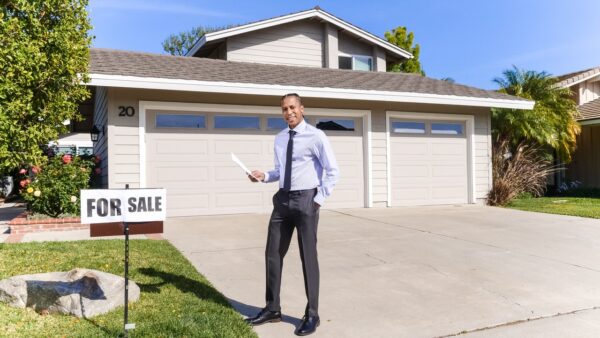Despite a stellar housing market characterized by low-interest rates for homebuyers and increased equity for homeowners, Black Americans are still struggling to navigate the home-buying process.

In January, homes in the United States increased in value by at least $50,000 from last year, marking a jump of almost 20 percent. In addition, Zillow predicts that home values will continue to grow at least another 20 percent as the housing market has experienced the largest inventory decrease in at least three years. Yet Black Americans are not reaping the benefits of homeownership, and often aren’t able to participate in the home-buying process.
The Black homeownership rate is lower than it was 10 years ago and currently sits at 45 percent, an almost 30 percent difference from white Americans. What’s keeping Black Americans out of the housing market? Two factors include less annual income and less access to wealth.
Pandemic Job Loss and Less Annual Income
Income, debt-to-income ratio and credit history are some of the key factors in the mortgage approval process. For Black Americans, these factors can be a hindrance for several reasons.
Although the current unemployment rate sits at 3.8 percent and is decreasing to pre-pandemic levels, the Black unemployment rate is 8.6 percent. In addition, the unemployment rate for Black women, 5.8%, is significantly higher than that for Latina, white and Asian woman, according to data provided by the National Women’s Law Center. The unemployment of Black Americans is not relegated to low-income workers. Black Americans with an associate degree experience unemployment rates at 6.9 percent compared to the rate for white high-school dropouts: 5.8 percent.
The average Black household earns 59 cents for every dollar; the income gap existing between Black and white households is at least $29,000 annually, according to the Economic State of Black America.
Low Access to Wealth
The combination of possessing less income, high debt and collective employment woes place Black Americans in a precarious position to save for a down payment for a house. In addition, since Americans’ generational wealth comes from homeownership and the ability to support future generations, many Black Americans are at a disadvantage and are less likely to have down-payment assistance from family.
Systemic inequality and long-term disparities in the home-buying process, including redlining, mortgage discrimination and access to credit, keep Black Americans from successfully following through in the home-buying process.
Solutions to Lagging Black Homeownership
To combat the gap in Black wealth generation, several organizations have established initiatives on a local and national level to support homeownership. For instance, the 3by30 program has the goal of supporting three million Black Americans to become homeowners by 2030. This initiative is providing credit counseling, down-payment assistance and support throughout the mortgage process.




